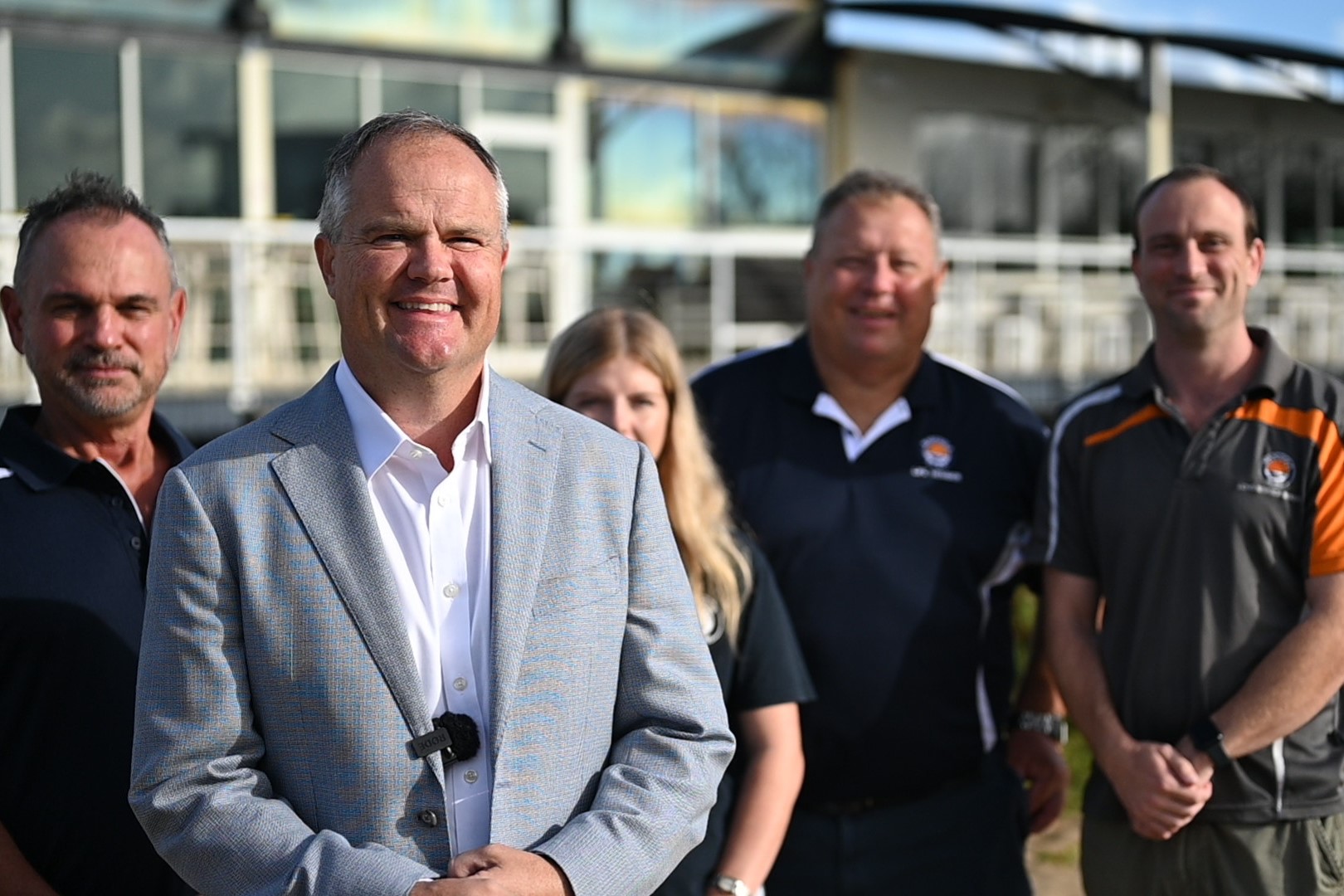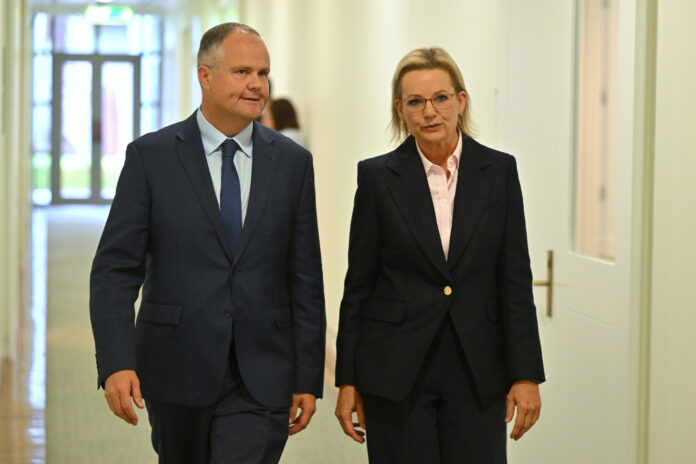A Sunshine Coast MP has been elected deputy of the federal Liberal party.
Ted O’Brien was appointed to the position on Tuesday, when Sussan Ley was chosen to lead the party to the next election.
Mr O’Brien has been the Member for Fairfax since 2016, when Clive Palmer did not seek re-election.
He has held a comfortable margin in the electorate and staved off a challenge from Labor’s Naomi McQueen this month, with a 6.3 per cent swing against him.
Mr O’Brien, 51, was the Shadow Minister for Climate Change and Energy from 2022 and has been a vocal advocate for nuclear energy.
Do you have an opinion to share? Submit a Letter to the Editor at Sunshine Coast News via news@sunshinecoastnews.com.au. You must include your name and suburb.
Mr O’Brien said, via social media, that he was ready to “work tirelessly” in the position.
“I’m deeply honoured to have been elected by my colleagues as deputy leader of the Liberal Party, serving alongside Sussan Ley MP as leader,” he said.
“I’m grateful for their trust and will work tirelessly to repay that faith through years of service and hard work.
“There’s a lot to do and I’m ready to get to work.”

Mr O’Brien’s appointment was welcomed by federal MP Andrew Wallace, whose electorate of Fisher is next to Fairfax.
“Great to have the Sunshine Coast’s own Ted O’Brien MP take on the role of deputy leader of the Liberal Party,” he said via social media.
“Ted and I have worked together for nine years to deliver better roads and rail on the Sunshine Coast.
“Ted was instrumental in securing the 2032 Olympic and Paralympic Games and proved to be a fierce advocate for a bolder approach to nation-building and for securing affordable energy. He’s an incredibly hard worker and will be a fantastic deputy leader.
“I look forward to working alongside him in his new roles.”
Mr O’Brien was elected deputy leader despite fanfare about Senator Jacinta Nampijinpa Price running as Angus Taylor’s second-in-command after jumping to the Liberal party room from the Nationals.
The deputy ballot came down to Queenslanders Phil Thompson and Mr O’Brien, after Senator Jacinta Nampijinpa Price pulled out.
The former energy spokesman, who spearheaded the coalition’s energy policy, won 38 votes to 16.

Senator Price had teamed up with Angus Taylor in a bid to become his second-in-command but the ticket was dead on arrival.
She arrived at her first Liberal party room meeting flanked by conservative senators Michaelia Cash, Jonno Duniam and Claire Chandler.
Her defection from the National Party to run as deputy angered former colleagues and some moderate Liberals who disagreed her brash style of politics would be a vote winner in the inner cities.
Meanwhile, Ms Ley became the first female leader of the federal Liberals.
The former Liberal deputy defeated ex-shadow Mr Taylor 29 votes to 25 in a party room ballot of 54 members.
But she may have been handed a poisoned chalice after being tasked with rebuilding the Liberal party after almost all of its metropolitan seats were wiped out on May 3.
The coalition holds 42 of 150 lower house seats, less than half of Labor’s 93.
Of three seats yet to be called, the Liberals are ahead in two and Labor one, meaning there’s a chance of a slight improvement in the tally, but the coalition faces a Herculean task to win government in three years regardless.
There is no reason to assume whoever takes the job won’t last until the next election, and the absence of a deep bench could bode well for them, Australian National University politics lecturer Jill Sheppard said.
Want more free local news? Follow Sunshine Coast News on Facebook, LinkedIn and Instagram, and sign up for our FREE daily news email.
But leading the coalition when it holds less than half as many seats as Labor is a tough ask, and there is a reason other contenders such as Dan Tehan and Andrew Hastie were quick to rule themselves out.
“It does feel like a bit of a poisoned chalice,” Dr Sheppard told AAP.
“The most important day-one job is to keep the party united, and that’s not going to be easy when there’s a lot of recriminations to be had.”
Moderates have urged the Liberals to abandon culture wars and return to the centre but Dr Sheppard warned that might not solve the party’s problems.
Coming up with policies that stuck closer to the centre could make it harder for the Liberals to differentiate themselves from Labor, she said.
Some of the coalition’s lost votes likely bled to hard-right parties such as One Nation, which could spark internal debates about the importance of “culture wars” to some constituents.
However, it is unclear whether the next leader will be able to change the Liberal Party’s ideological direction.
Leaders were constrained by the party room’s extremes and were forced to find balance in the middle, Dr Sheppard said.
“To an extent, it doesn’t matter who is leader – the parties are pretty strong and they will constrain their leader,” she said.
The Nationals re-elected David Littleproud as their leader on Monday following a challenge from conservative senator Matt Canavan.





